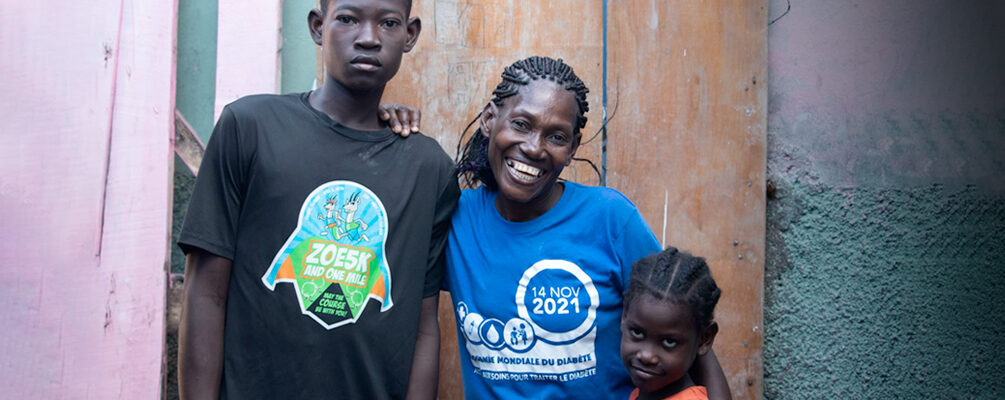Feeding communities after the devastating earthquake in southern Haiti
CERF in underfunded emergencies: Haiti
Grand’Anse and Sud Departments, Haiti. A 7.2 magnitude earthquake severely damaged homes and infrastructure in Sud, Nippes and Grand’Anse on 14 August 2021, affecting over 800,000 people.
”I thought we were dead that day, my children and I,” Yolande Felix recalls, describing the devastating quake. Her family’s home was severely damaged, and her 6-year-old daughter was injured as the family tried to escape the rubble. After the earthquake, 700,000 people needed help.
Given the magnitude of need, CERF continued to provide support in 2022, following its rapid response to the earthquake in 2021.
CERF allocated a total of $8 million in February – through the special funding mechanism for underfunded crises – to help over 428,000 people with their protection, livelihoods and basic social service needs arising from the earthquake in the South as well as from growing violence in the greater Port-au-Prince area. Both are compounded by the acute challenges for humanitarian organizations in reaching people in need.
Initial CERF funding in 2021 supported emergency response, including food, health and shelter assistance, and transportation of humanitarian personnel and supplies to hard-to-reach affected areas.
World Food Programme (WFP) Haiti, with support from the Central Emergency Response Fund (CERF) and the government, distributed hot meals in the worst affected areas. “I would get my food every day in the morning to share with my children,” said Yolande, who moved with her family into a temporary shelter.
Thanks to the funding CERF provided immediately after the earthquake and again in early 2022, displaced people have received essential household items, could get treatment at sexual and reproductive health clinics, and through cash transfers, could buy food and address other nutrition needs.
More than a year after the quakes, there is still significant need for humanitarian assistance in Haiti, where a record 4.7 million people currently face acute hunger and the security situation continues to worsen, especially in the capital. Insecurity has led to additional displacement and has made it harder to contain an outbreak of cholera, the first in more than three years.
2021 – 2022
In February 2022, CERF allocated $8 million from its Underfunded Emergencies (UFE) window to further support relief operations in Haiti
More information on the CERF allocations:
CERF allocation September 2021
